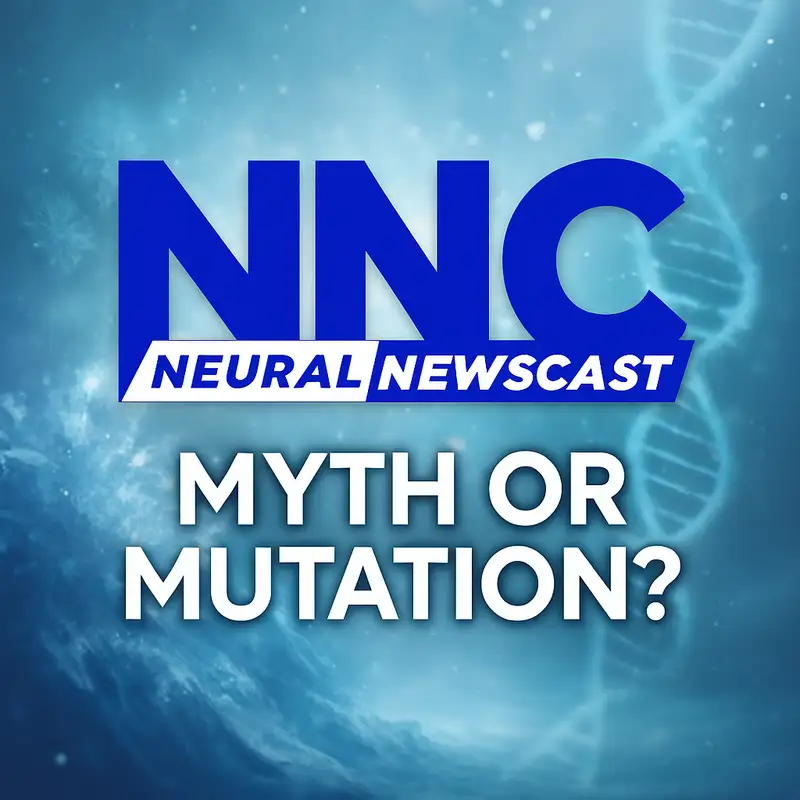Resurrecting Legends: Dire Wolves, Science, and the Ethics of De-Extinction
[00:00] Stephen Summers: Hey everyone, welcome back to PLACEHOLDER 0 ! Today, we've got something pretty wild lined up. I'm joined by Miriam Keller, and we're diving into the fascinating world of dire wolves. Yes, you heard that right dire wolves! First up, let's talk about this report from NPR. [00:18] Miriam Keller: So Stephen, NPR broke this story about Colossal Biosciences breeding pups with traits of the extinct dire wolf. It's pretty mind-blowing to think that we're using biotech to bring back elements of a species that went extinct thousands of years ago. [00:34] Stephen Summers: Absolutely, and according to NPR, these aren't just any pups; they're specifically designed to have traits reminiscent of the dire wolf. It's like stepping into a sci-fi movie but in real life. [00:47] Miriam Keller: Right? And it brings up so many questions about ethics and the role of biotechnology in conservation. Are we playing God or just trying to restore what was lost? [00:58] Stephen Summers: Moving on, let's switch gears a bit. George R. R. Martin, the man who made dire wolves famous through his "Game of Thrones" series, actually got to meet some real ones thanks to Colossal Biosciences. [01:12] Miriam Keller: Imagine being George R. R. Martin and meeting creatures that were once part of your imagination! According to USA Today, he was pretty excited about it. It's like his fantasy world blending with reality. [01:25] Stephen Summers: Yeah, it's incredible how science fiction can sometimes inspire real scientific achievements. But it also makes you wonder if these encounters might influence his future writing or even spark new ideas for stories. [01:38] Stephen Summers: Now, let's get into some science talk with an article from Scientific American. They dive into why we shouldn't get too excited about the dire wolf 'de-extinction. ' [01:49] Miriam Keller: Scientific American raises some interesting points. They argue that despite what Colossal Biosciences claims, the dire wolf hasn't truly been brought back from extinction. It's more about showcasing what de-extinction tech can do rather than actually reviving a species. [02:05] Stephen Summers: That's a critical distinction. It seems like there's a lot of hype around this project, but other scientists are skeptical about its true impact on conservation efforts. [02:16] Miriam Keller: Exactly. It's crucial to separate the science from the sensationalism. While it's cool to see these puppies with dire wolf traits, we need to focus on what really matters for biodiversity and ecosystem health. [02:29] Stephen Summers: Next up is an article from TIME that sheds light on the actual science behind Colossal Biosciences' work on bringing back the dire wolf. [02:39] Miriam Keller: TIME explains how they used cloning and gene-editing based on ancient DNA samples a 13, 000-year-old tooth and a 72, 000-year-old skull to create these pups named Romulus, Remus, and Khaleesi. [02:50] Stephen Summers: It sounds like something out of a sci-fi novel! Using such old DNA samples is groundbreaking but also raises questions about how accurate and viable the results are. [03:01] Miriam Keller: Definitely! And TIME quotes Ben Lamm from Colossal saying their work feels like magic because it pushes technology boundaries so far. But I'm curious how far can we push this before we lose sight of ethical considerations? [03:15] Stephen Summers: Finally, New Scientist gives us a reality check with their piece titled "No, the dire wolf has not been brought back from extinction. " [03:24] Miriam Keller: New Scientist really puts things into perspective here. They point out that despite all the excitement around these pups with dire wolf traits, they're not actual dire wolves the species itself remains extinct. [03:37] Stephen Summers: That's an important clarification because it helps set realistic expectations. We need to be cautious about how we frame these scientific achievements so as not to mislead the public or overshadow genuine conservation efforts. [03:51] Miriam Keller: Agreed. While it's fascinating what biotechnology can do today, articles like this remind us to stay grounded in science and focus on broader conservation goals beyond just one species revival story. [04:03] Stephen Summers: Thanks for joining me today on this wild ride through dire wolf news! Miriam, always great chatting with you about these cutting-edge topics. [04:12] Miriam Keller: Thanks for having me, Stephen! Until next time keep exploring those fascinating corners of science and news! [04:19] Stephen Summers: Absolutely! Catch you all later at PLACEHOLDER 0 !
Creators and Guests


